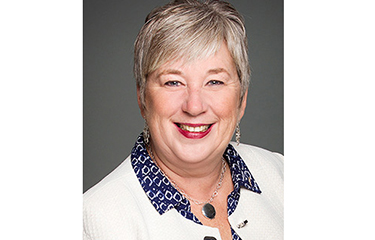Unique challenges await Trudeau’s newly-appointed Canadian fisheries minister

Canada’s Prime Minister Justin Trudeau has chosen Nova Scotia's Bernadette Jordan to head up the country’s Department of Fisheries and Oceans, and to oversee its Coast Guard.
This marks the second time that Jordan has held a cabinet seat in Canada – Trudeau initially brought her aboard in January 2019 as the minister of rural economic development. Jordan, who was first elected in 2015 to represent South Shore-St. Margarets, takes over the fisheries minister role from British Columbia’s Jonathan Wilkinson, who will serve as the minister of environment and climate change in Trudeau’s updated cabinet.
Trudeau, who is the leader of Canada’s Liberal Party, remarked upon the diversity of his new cabinet in a 20 November statement.
“Today, I can introduce the strong, diverse, and experienced team that will work together to tackle the big issues that matter to people from coast to coast to coast. Whether it’s making life more affordable for the middle class, taking action on climate change, or keeping our communities safe, we will continue working tirelessly for all Canadians,” he said.
The Fisheries Council of Canada (FCC) said it was “pleased to welcome” Jordan in her new role and expressed reverence for Wilkinson’s contributions to Canada’s seafood sector in a 21 November press release.
“On behalf of FCC members, I welcome Minister Jordan back to the fisheries realm. It doesn’t seem that long ago that she was Chair of the House of Commons Standing Committee on Fisheries & Oceans,” FCC President Paul Lansbergen said. “We look forward to rekindling our working relationship to enhance the growth potential of the sector.”
“I found Minister Wilkinson thoughtful and look forward to continued dialogue on how to recognize the positive role the sector plays in addressing ocean biodiversity,” Lansbergen added. “Marine conservation and sustainable fisheries are not a one-or-the-other trade-off. Both can be achieved if we work together.”
Jordan is set to inherit a number of challenges in assuming her new post, a 20 November report from CBC stated. She will now be tasked with explaining the Canadian government’s plan to expand several marine protected areas lining the country’s East Coast, and will have to address endangered North Atlantic right whale protection policies – a dire and tense subject for fisheries stakeholders, conservationists, and legislators alike, both domestically and in the neighboring U.S.
If it passes, “Canada’s first-ever Aquaculture Act” will also fall on Jordan to champion and uphold. The legislation entails a similar governmental marketing boost for salmon farmers in Canada already afforded to Norwegian, Scottish, and Chilean aquaculturalists, and also calls for the “transition [in British Columbia] from open net pen salmon farming in coastal waters to closed containment systems by 2025. Such a plan has garnered critiques from many in Canada’s aquaculture industry: Newfoundland Aquaculture Industry Association Executive Director Mark Lane called it an “insult” back in October.
As far as North Atlantic right whale protections are concerned, Jordan again enters a contentious arena. Just this week, U.S. Democratic Senators Edward Markey and Elizabeth Warren sent a letter to NOAA Fisheries urging the agency to examine Canada’s Atlantic Fisheries marine mammal conservation standards to see if they are “doing enough to protect” the beleaguered whale species.
“Although Canada took regulatory action in 2017 to protect right whales, it appears that some of these measures have since been modified or removed,” Markey and Warren stated in their letter. “This year, Canadian regulators removed or modified protections, including reducing the season-long snow crab closure area by 63 percent; removing a vessel speed restriction zone; and converting several closures or speed restriction areas to dynamic management that is triggered only after right whales are observed. Consequently, of the ten right whale mortalities documented in 2019, nine occurred in Canadian waters.”
The Maine Lobstermen’s Association (MLA), citing data from the National Marine Fisheries Service, said a large percentage of right whale deaths have occurred in Canada, with ship strikes and the country’s snow crab fishery playing a primary role.
Of course, ample opportunity also lies ahead for Jordan and the industries she’s charged with representing. Overall, the Canadian seafood industry creates 80,000 direct jobs – in coastal and rural communities – and garners CAD 7 billion (USD 5.2 billion, EUR 4.7 billion) in exports, according to FCC.
“As global population grows and demand for protein increases, Canadian wild-capture fisheries have the potential to make our coastal communities more prosperous,” FCC said, noting that two-thirds (or 80 percent by value) of Canada’s wild capture seafood production is certified by the Marine Stewardship Council.
Photo courtesy of the Goverment of Canada





Share